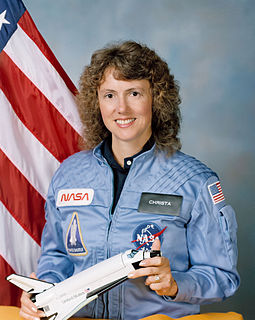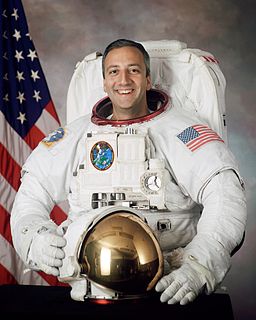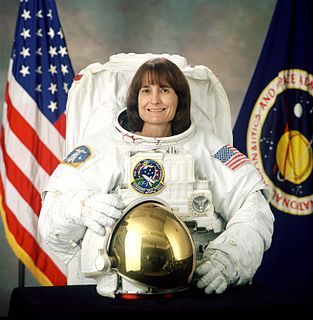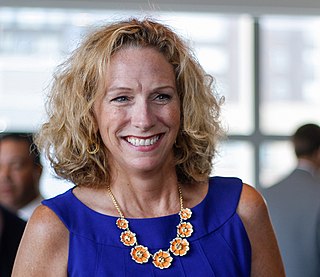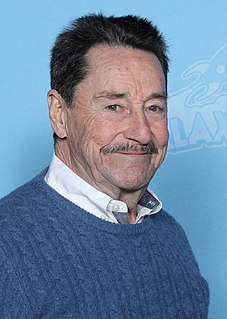A Quote by Christa McAuliffe
If I can get some student interested in science, if I can show members of the general public what's going on up there in the space program, then my job's been done.
Related Quotes
I had always been interested in the space program, and I didn't know if I could be an astronaut like I'd dreamt about when I was a little kid - to me it sounded kind of silly, someone grow up to be an astronaut - but, when I was in my 20s, I thought maybe I can get a job with NASA or a contractor, do something with the space program.
You've got the right - you've got a wonderful person with Sheila Bair, most of the viewers have never heard of Sheila Bair. [She] has taken eight percent of the deposits in the United States and seamlessly moved those over to sound institutions which in turn have gotten more capital, ended up, it's been a magnificent job.She'll never get a golden parachute or any severance pay or anything. She's done a great job. We've got some great public servants. We have I think the right people in there to get the job done, and then they need more tools.
By 1988, I'm seeing this commercial phenomenon beginning to show up. Hardware makers are selling routers to universities so they can build up their campus networks. So I remember thinking, 'Well, how are we going to get this in the hands of the general public?' There were no public Internet services at that point.
I've come to understand over the years that you're not going to please everybody. Some people are not interested in seeing a woman in the role of a broadcaster. But there are a lot of people who do come into this with an open mind, and it's up to me to prove to them that I'm qualified for the job and can get it done.
I think I set myself on a course to become a scientist around about the time that Carl Sagan's 'Cosmos' series was on television, and there really was no going back for me at that point, and then I went on to study space science and then get my Ph.D., then go aboard and work in the European Space Agency.
I'm always involved with the Aerospace Program and NASA and Goddard Space Flight Center. And if kids feel so inclined, they can log onto NASA and the Optimus Prime Spinoff Award, which we present every year to some of the brilliant young minds that are taking up into the academics of space, science, technology, math.
It shouldn't be so difficult to determine what a planet is. When you're watching a science fiction show like 'Star Trek' and they show up at some object in space and turn on the viewfinder, the audience and the people in the show know immediately whether it's a planet or a star or a comet or an asteroid.
It is clear that everybody interested in science must be interested in world 3 objects. A physical scientist, to start with, may be interested mainly in world 1 objects--say crystals and X-rays. But very soon he must realize how much depends on our interpretation of the facts, that is, on our theories, and so on world 3 objects. Similarly, a historian of science, or a philosopher interested in science must be largely a student of world 3 objects.
